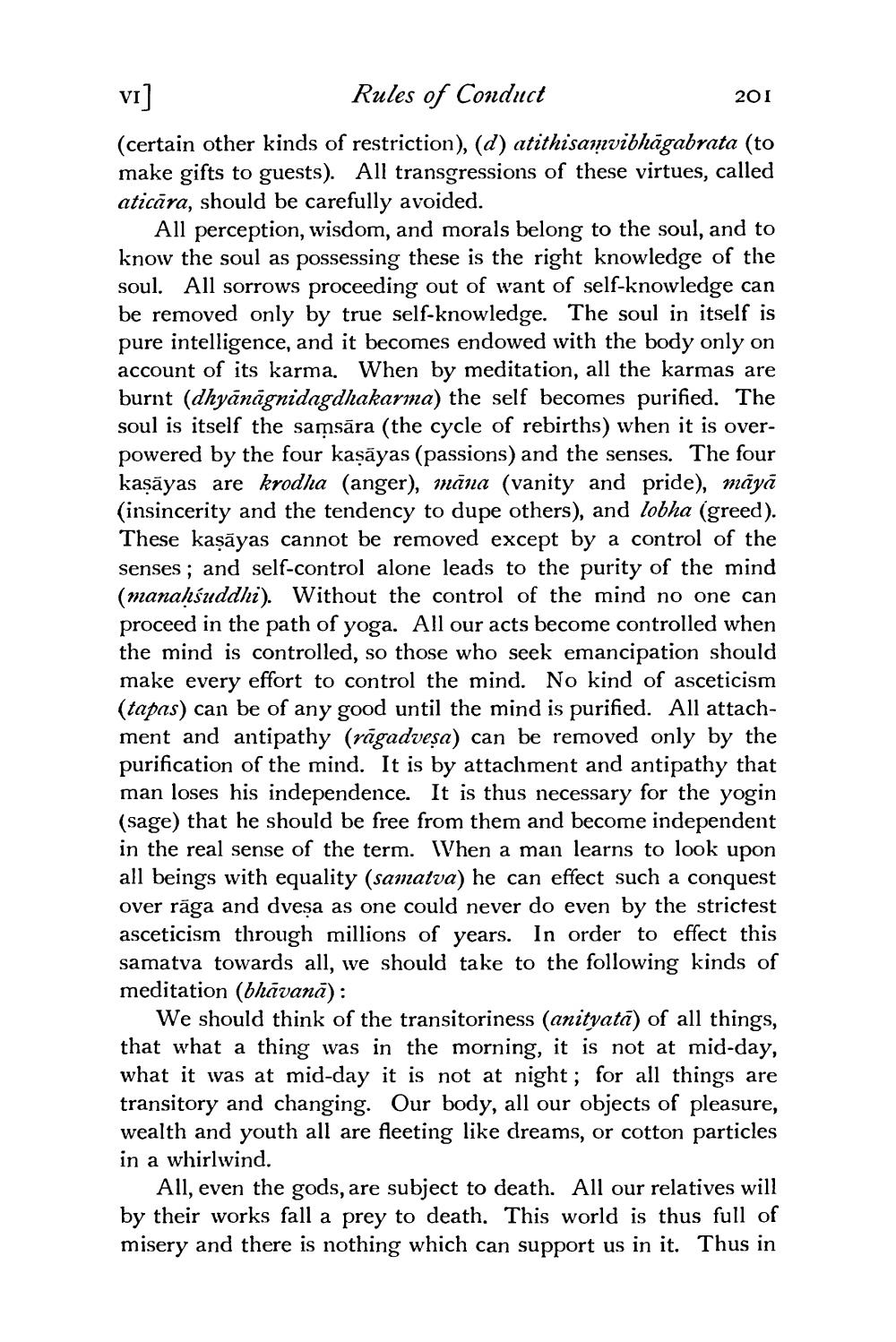________________
201
v1]
Rules of Conduct (certain other kinds of restriction), (d) atithisamvibhāgabrata (to make gifts to guests). All transgressions of these virtues, called aticāra, should be carefully avoided.
All perception, wisdom, and morals belong to the soul, and to know the soul as possessing these is the right knowledge of the soul. All sorrows proceeding out of want of self-knowledge can be removed only by true self-knowledge. The soul in itself is pure intelligence, and it becomes endowed with the body only on account of its karma. When by meditation, all the karmas are burnt (dhyānāgnidagdhakarma) the self becomes purified. The soul is itself the samsāra (the cycle of rebirths) when it is overpowered by the four kaşāyas (passions) and the senses. The four kaşāyas are krodha (anger), nāna (vanity and pride), māyā (insincerity and the tendency to dupe others), and lobha (greed). These kaşāyas cannot be removed except by a control of the senses; and self-control alone leads to the purity of the mind (manahśuddhi). Without the control of the mind no one can proceed in the path of yoga. All our acts become controlled when the mind is controlled, so those who seek emancipation should make every effort to control the mind. No kind of asceticism (tapas) can be of any good until the mind is purified. All attachment and antipathy (rāgadveşa) can be removed only by the purification of the mind. It is by attachment and antipathy that man loses his independence. It is thus necessary for the yogin (sage) that he should be free from them and become independent in the real sense of the term. When a man learns to look upon all beings with equality (samatva) he can effect such a conquest over rāga and dvesa as one could never do even by the strictest asceticism through millions of years. In order to effect this samatva towards all, we should take to the following kinds of meditation (bhāvanā):
We should think of the transitoriness (anityata) of all things, that what a thing was in the morning, it is not at mid-day, what it was at mid-day it is not at night; for all things are transitory and changing. Our body, all our objects of pleasure, wealth and youth all are fleeting like dreams, or cotton particles in a whirlwind.
All, even the gods, are subject to death. All our relatives will by their works fall a prey to death. This world is thus full of misery and there is nothing which can support us in it. Thus in




